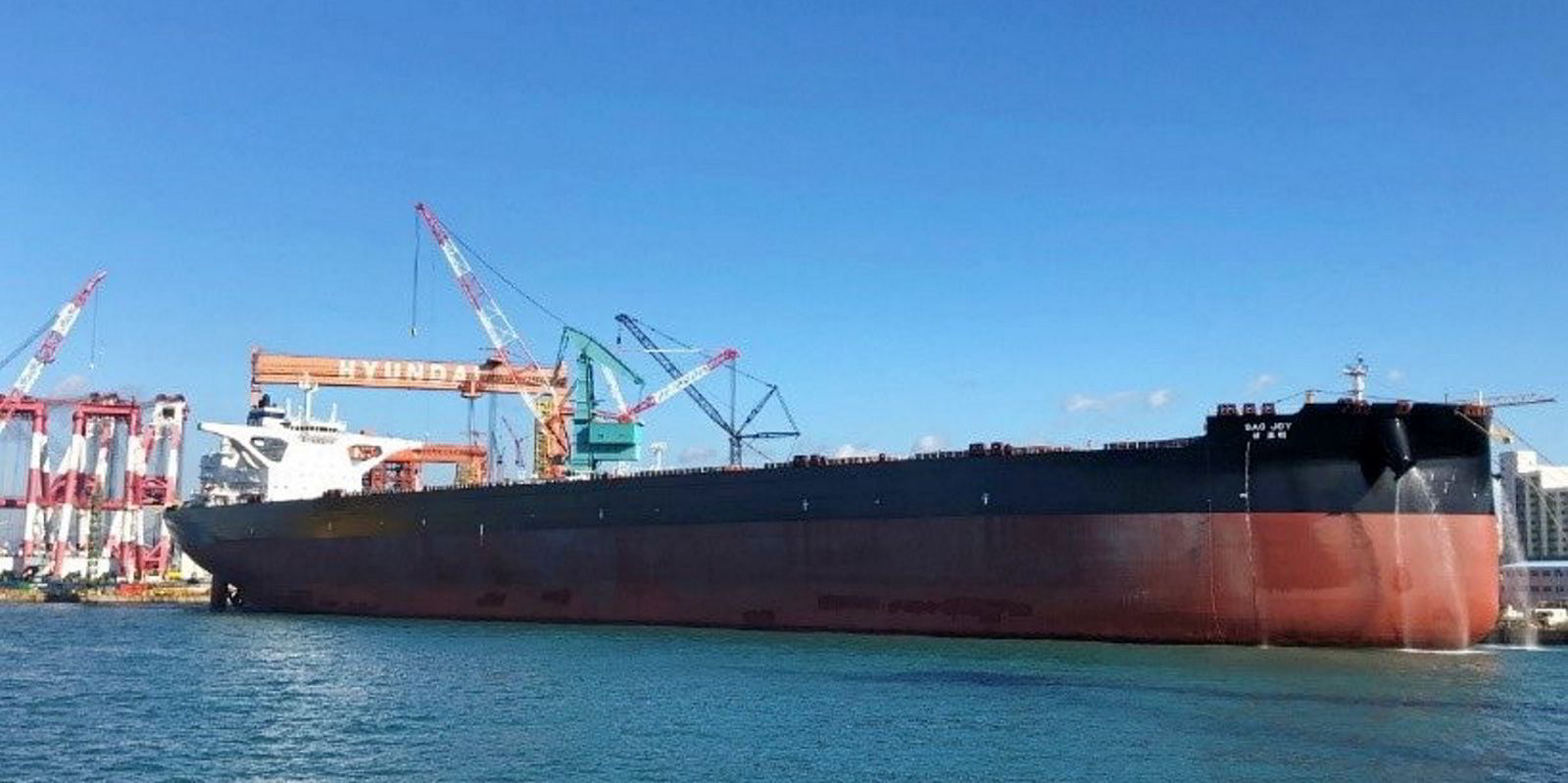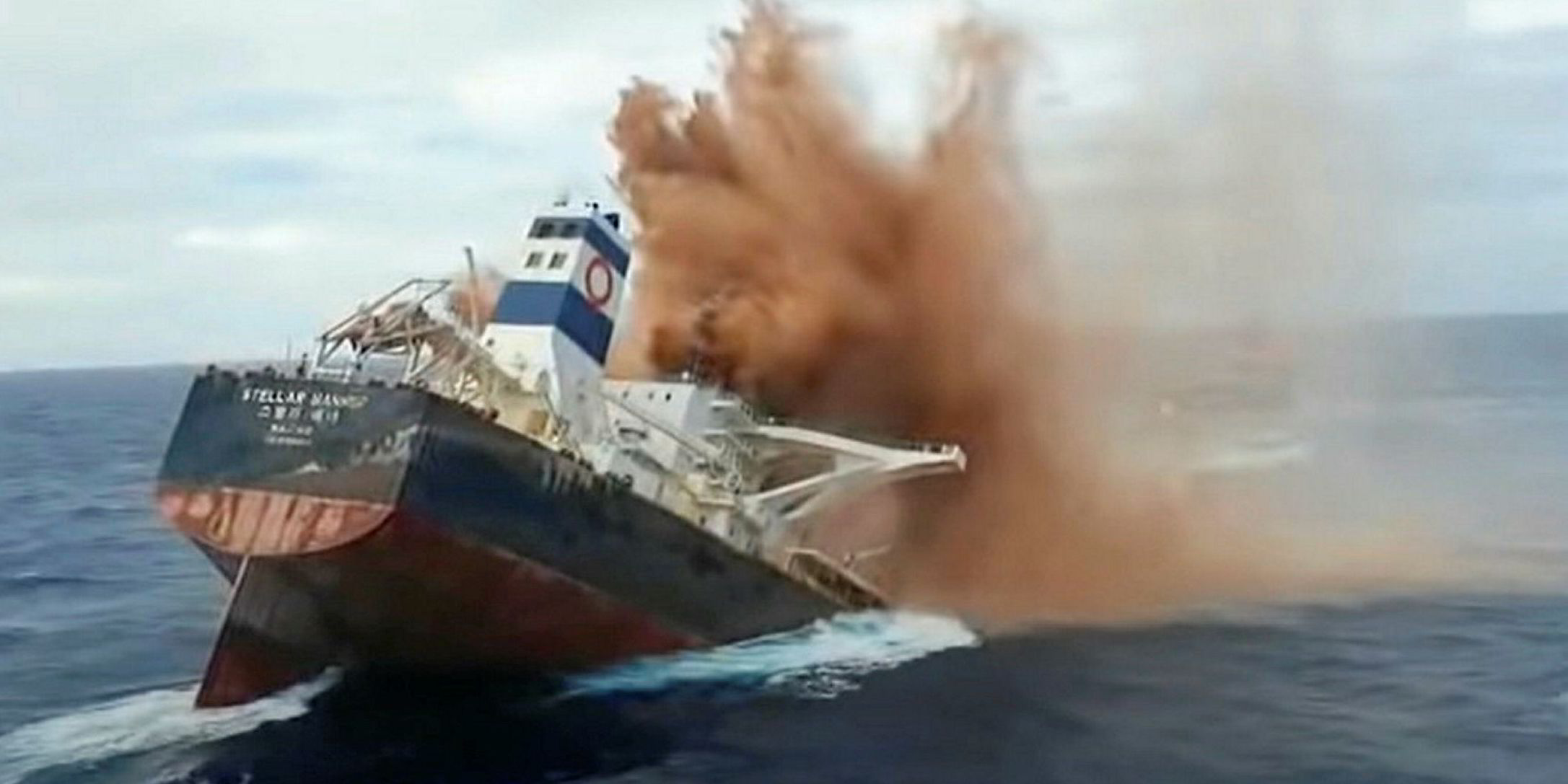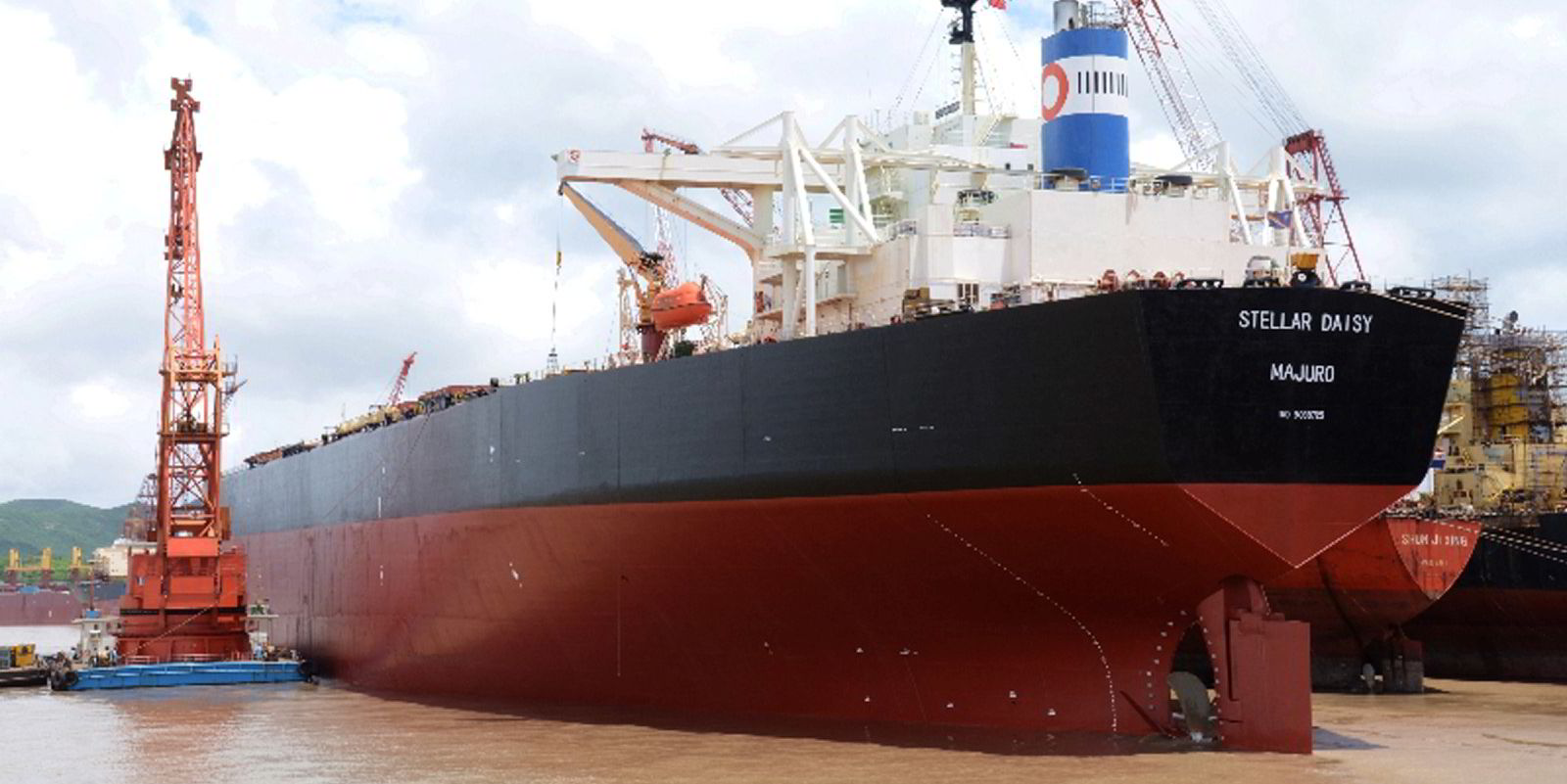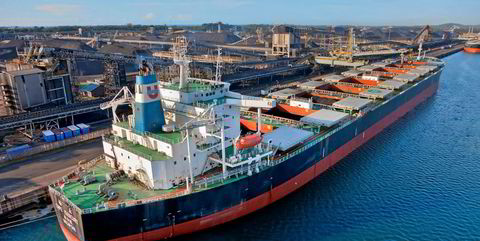Struggling South Korean ore carrier owner Polaris Shipping is shoring up its business against would-be buyers after fending off the advances of a local consortium.
The company, which has a relatively high debt-to-equity ratio of about 500%, is understood to be in refinancing talks.
Sources familiar with Polaris said a local firm, Hoban Construction, and a subsidiary of a Chinese private equity fund spent KRW 150bn ($105m) in June to buy a 25% stake in the owner, which was held by private equity fund Polaris Ocean PEF.
But Polaris Shipping’s main shareholder — Pola E&M, which acts as its holding company — raised a loan and paid KRW 188bn to buy back the shares.
A Polaris official confirmed the buyback and said Pola E&M now controls 80.53% of the company and founders WJ Kim and HS Han own 2.93% each. The remaining 13.6% is held by another equity fund, Aneas-NH.
The official said the Hoban consortium sold back the shares as it was not aware of the “change of control” clause in the charter contracts, which stipulates that any change to the organisation would lead to their terms and conditions being rewritten.
The buyback also sought to prevent the Hoban consortium from acquiring Polaris stakes owned by Aneas-NH.
A privately owned company, Polaris is known for its large fleet of ore carriers. It has a strong relationship with mining giant Vale and transports 10% of its iron ore exports.
Shipping sources said Polaris has been struggling financially for several years after its plan for a public listing in Oslo to raise up to $300m to finance newbuildings did not take off. Like most shipping companies, it was also affected by the outbreak of Covid-19.
The sinking of Polaris’ converted 266,100-dwt VLOC Stellar Daisy (built 1993) off Uruguay in 2017 that killed 22 of the 24 crew is said to have contributed to its financial woes.
Polaris said it suffered a substantial financial net loss in 2019 due to a one-off, non-cash basis impairment loss because of its fleet renewal programme.
“The decision of early retirement of the vessels was based on a strategical decision regarding [the] IMO 2020 sulphur cap, as it would not make economic sense to install scrubbers on the vessels with just a few years of life remaining and to curb industry concerns related to converted VLOCs,” it said.
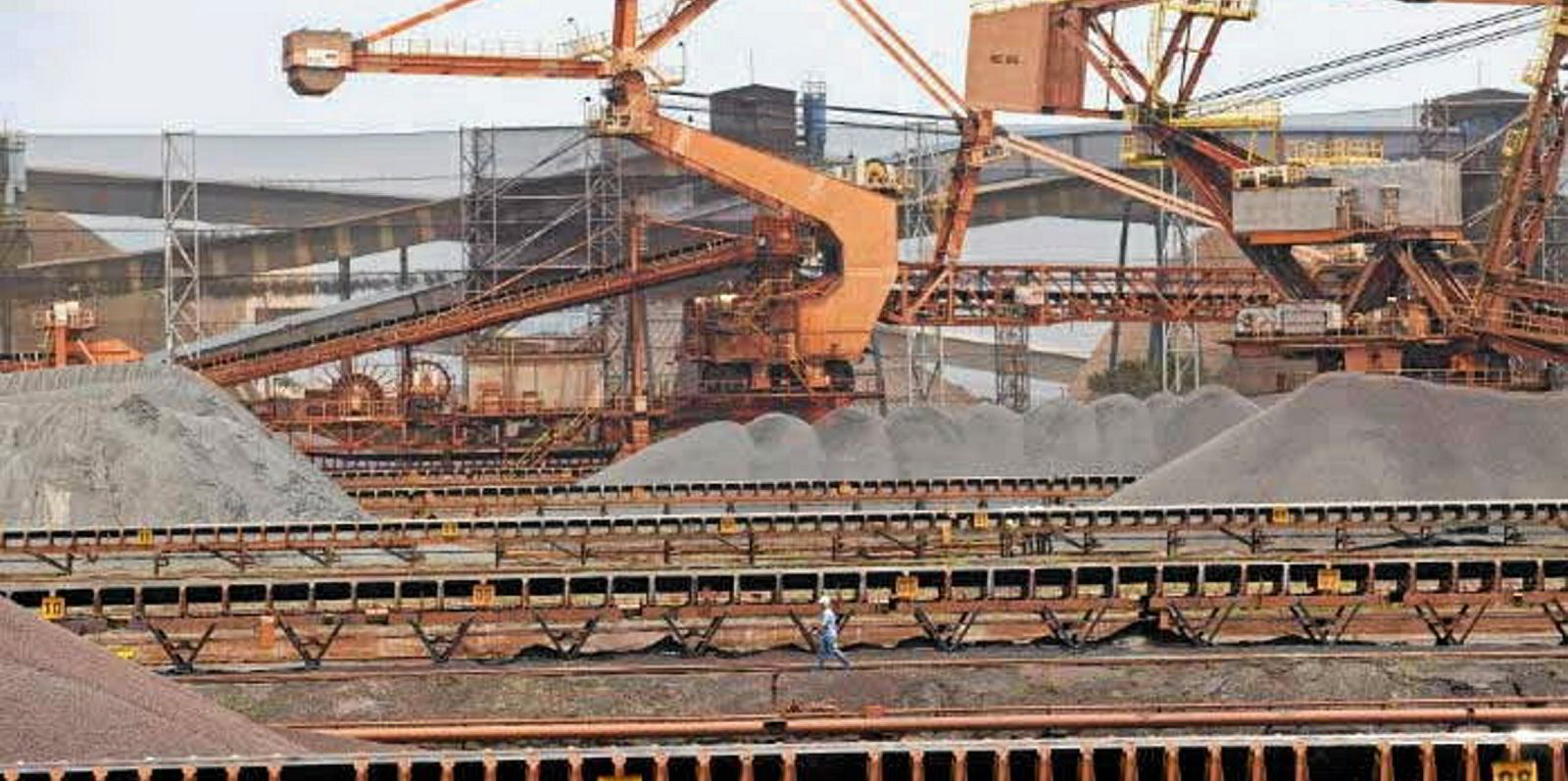
The company said it faced a short-term liquidity crunch in 2020 following the market turmoil led by Covid-19 and its decision to lay up its 14 old VLOCs under its fleet renewal programme.
“As a measurement against liquidity risks, we introduced [a] perpetual bond of KRW 50m from Korean Ocean Business Corp to facilitate funding,” the owner said.
Polaris also sold five of the 18 units of 325,000-dwt ore carrier newbuildings that it ordered at Hyundai Heavy Industries in 2017 to H-Line Shipping with long-term contracts attached.
It said the measures helped to turn around its financial standing from a negative balance.
“We would like to stress that we have successfully navigated this crisis and retrieved our financial stability, recovering our gearing ratio to 538.2% in the 2021 financial year from 1,544.63% in 2019.”
Polaris said it achieved record sales for 2021 and made an undisclosed net profit.
The company now owns 32 vessels, including one VLCC and two LR2s.
The three tankers are trading with Navig8’s pools, while most of the VLOCs are on long-term contracts of affreightment to Vale, Posco, Kepco and Hyundai Glovis.
